After a century, polygamists are leaving their home on the Utah-Arizona line
Story by Nate Carlise and Photos by Trent Nelson
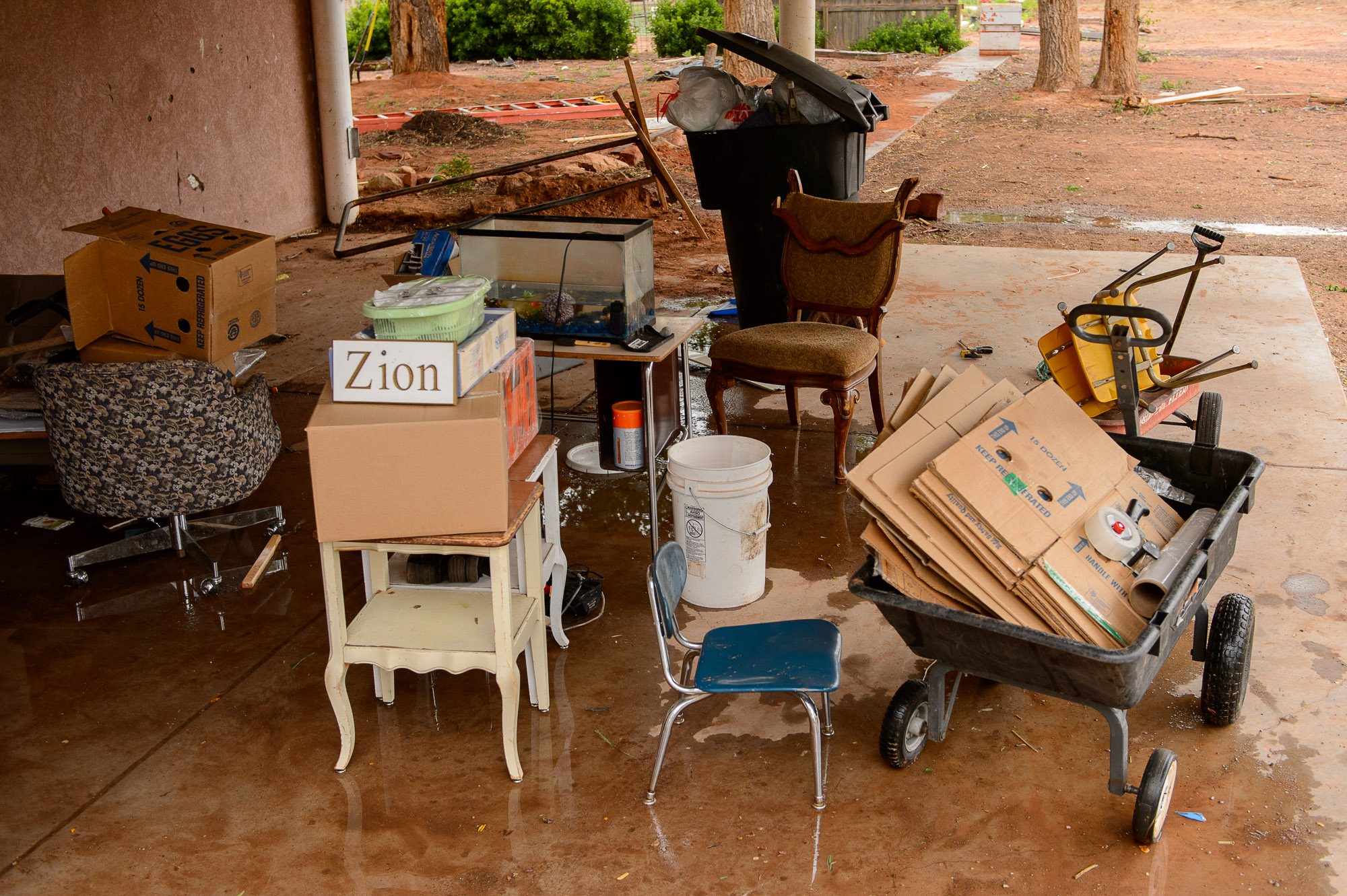
Colorado City, Ariz. • Shannon Darger’s belongings were packed. Her family members have decided to leave their home and move to Oklahoma.
A lot of her neighbors and fellow parishioners in the polygamous Fundamentalist Church of Jesus Christ of Latter-Day Saints have made similar choices, either moving in with other families here or leaving the community altogether.
But Darger wanted to wait for the constable and locksmith to reach her house before she walked away, and as she did, she affirmed her belief in FLDS President Warren Jeffs.
“I know with all my heart Warren is a prophet of God,” she said, “and these homes belong to him.”

Heeding the lessons taught by Jeffs and other FLDS leaders over the generations, the Dargers and many FLDS members have refused to cooperate with the land trust that owns the homes where they have been living. As a result, the people who are synonymous with polygamy are leaving the community that for a century has been North America’s unofficial headquarters of the practice. Loyal FLDS members are scattering throughout Utah and surrounding states.
While the sect is famously secretive, many members last week agreed to discuss their decisions with The Salt Lake Tribune. In interviews here and in adjoining Hildale, Utah, collectively known as Short Creek, the members say they have had enough of evictions and the “apostates” running the land trust, called the United Effort Plan (UEP).
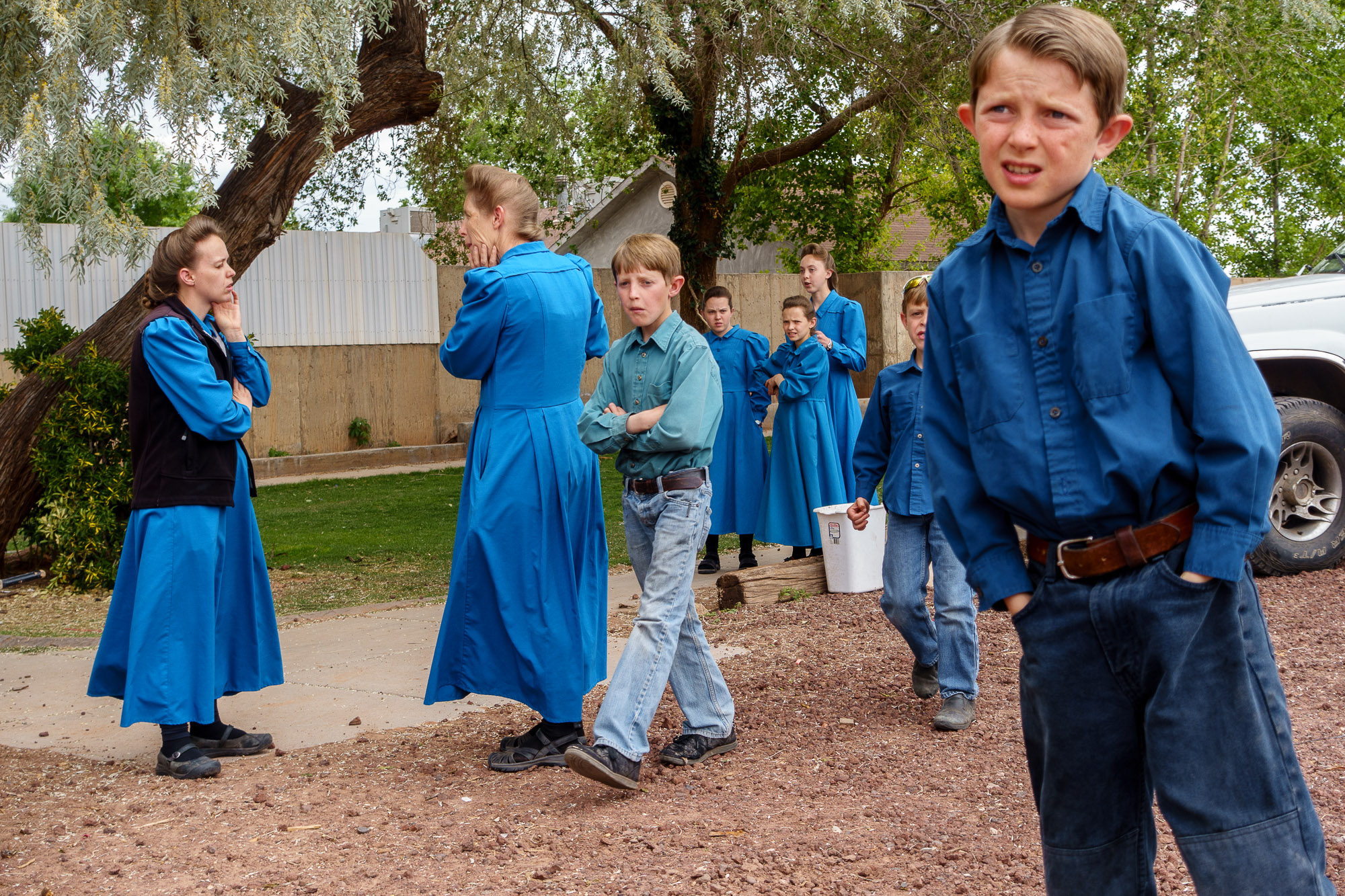
“It’s almost like there’s an exodus happening,” said Hyrum Dutson, who moved to neighboring Cane Beds, Ariz., last year with what he describes as his “large plural family.”

Dutson is closing his grocery store in Colorado City rather than striking a deal with the UEP. In recent years, his was one of only two stores in the community where FLDS members shopped for groceries. Dutson said his gross has been a fifth of what it used to be.
That’s the only metric Dutson has to measure how many FLDS members remain in Short Creek.
There have been no Sunday worship services here in about a year, he said, nor do the FLDS still have a bishop in Short Creek.
The previous bishop, Warren Jeffs’ brother Lyle, absconded from a pretrial release in a case involving alleged food stamp fraud in June and remains a federal fugitive.
Dutson frames what is happening in a historical context beginning with what he calls the persecution of Mormon founder Joseph Smith in the 19th century and his eventual murder in Illinois. Dutson says Warren Jeffs, despite his sentence of life plus 20 years in Texas for sexually abusing two underage girls he married as plural wives, has been persecuted, too.
Dutson and Lyle Jeffs were among the 11 defendants accused of fraudulently using food stamp benefits. Dutson pleaded guilty to a misdemeanor and served no jail time in the case.
“We look at all of this going on as a test,” Dutson said. “It’s a test of whether you like these earthly ways better than you like the Lord.”
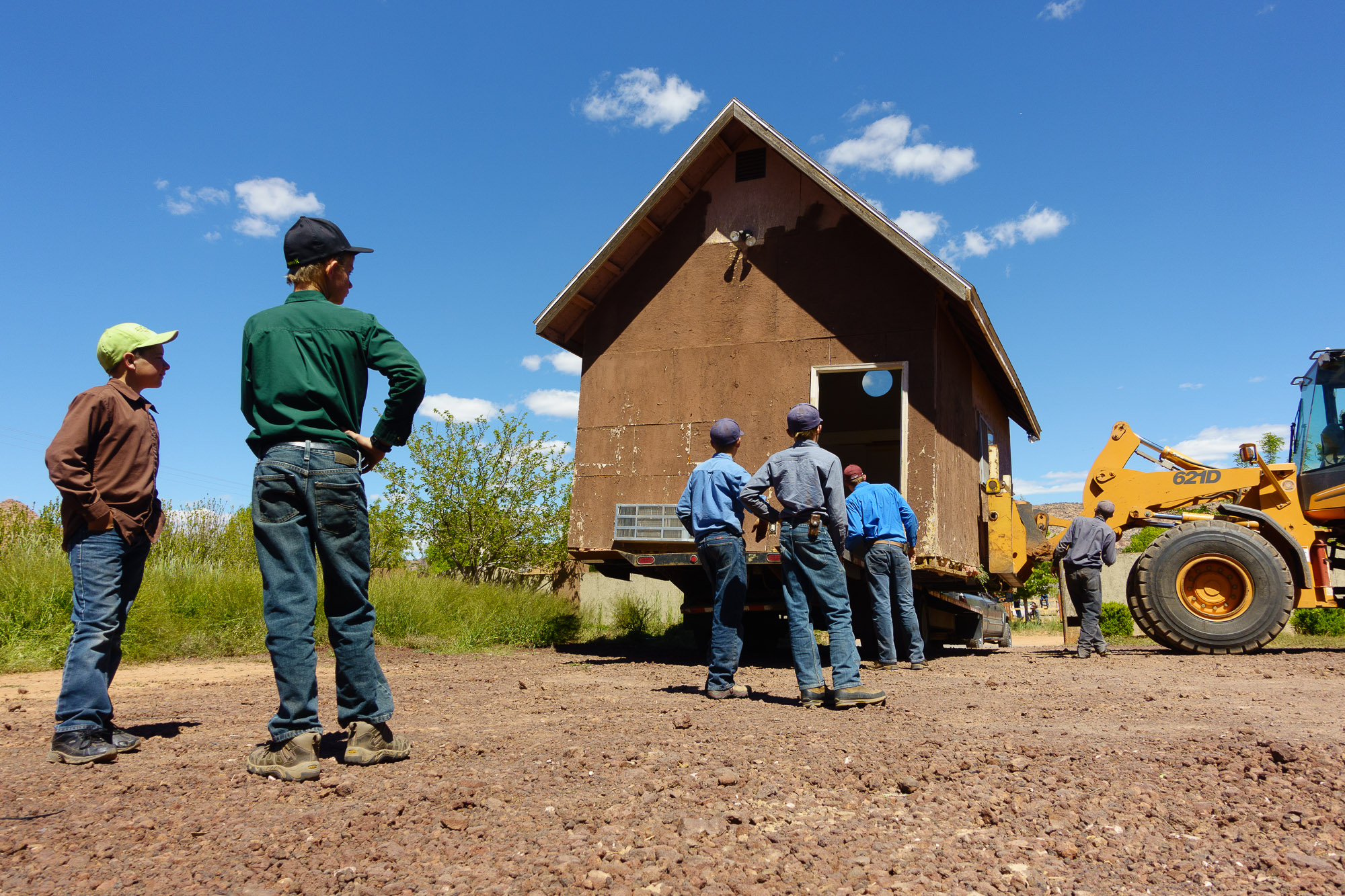
Moving out
Utah seized the UEP in 2005 out of concerns Warren Jeffs was mismanaging it and residents would lose their homes. A judge reformed the terms so the UEP became religiously neutral. Anyone who placed assets into the trust or worked on its behalf is considered a beneficiary of it, regardless of religion.
FLDS members refused to participate. They saw the seizure as government persecution and theft.
Plus, the UEP hired former FLDS members as employees tasked with managing the properties and record keeping. Years later, a judge appointed more former FLDS members to the board of trustees.
FLDS members have been taught that people who leave the church and work against it are apostates who — to quote a discourse Mormon leader Brigham Young once gave on apostasy — should be left “alone severely.”
The FLDS members largely have refused to sign occupancy agreements — sort of a cross between a rental contract and an agreement with a homeowners association — with the UEP or pay a required $100-a-month fee per home. UEP staffers often haven’t known who are living in the houses.
Property taxes also have gone unpaid in many cases. The parcel where the Dargers have been living, for example, has not been up to date on taxes since 2013 and owes $144,545, according to Mohave County.
So in the past year, the board of trustees has sought to replace noncompliant residents with beneficiaries who will sign occupancy agreements and save properties at risk of a tax foreclosure. Tribune journalists watched 15 evictions of homes and commercial properties over three days last week.
UEP Executive Director Jeff Barlow has repeatedly said no residents have to be evicted — they just have to sign an occupancy agreement and keep the taxes paid. The trustees are even willing to defer the $100-a-month fee if that is the only sticking point.
“There’s absolutely no reason an eviction needs to go through,” Barlow told The Tribune for an article published last month.
But the FLDS members have been unwilling to comply. The remaining FLDS families in Short Creek have had to bunk up to stay ahead of the evictions.
Where to go?
Liz had been living with eight children in the basement of the same home where the Dargers live. On Wednesday, she was trying to move.
Rain fell on the couches, chairs and tables in the yard. On the other side of the house, where the second story extends over a patio, sat vacuum cleaners, tools, framed pictures and an aquarium that still had a few inches of water inside. One goldfish was on its side, wagging its fins trying to stay below water.
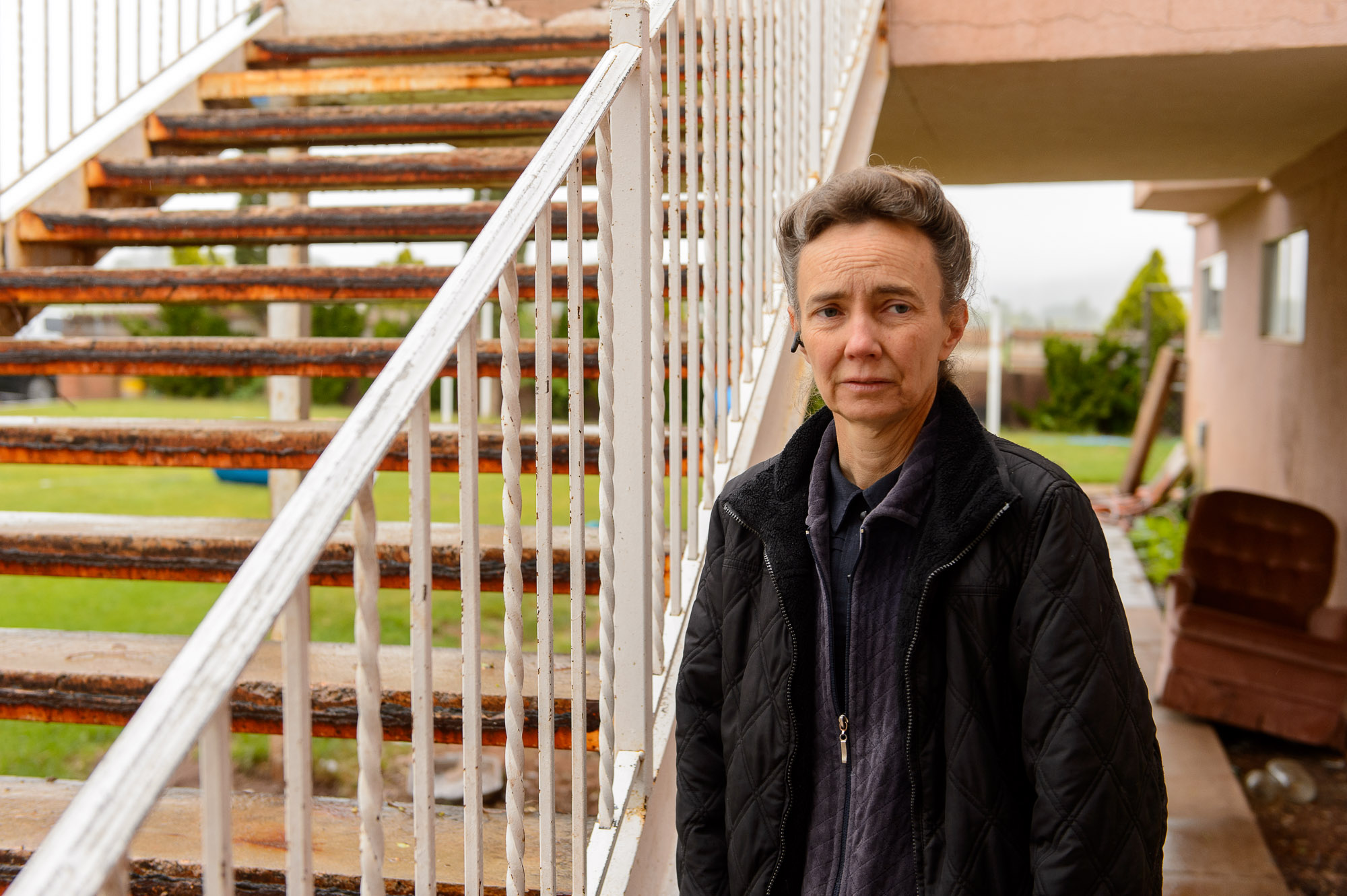
Liz, who gave only her first name, said she is separated from her husband. She and the children will move in with a sister for a week. Then that sister, according to a notice posted on her door, is due to be evicted, too.
Liz would like to move from Short Creek, but she doesn’t know where she can go or what she can afford.
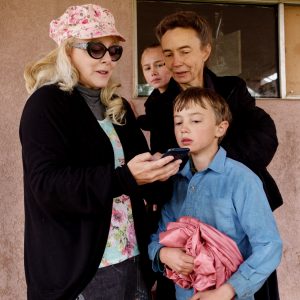
“I have never purchased anything,” Liz said. “I have no credit.”
Two of her older daughters work in Kanab, Liz said, and the household’s income is about $2,000 a month.
Like most FLDS, Liz eschews going on the internet. Her housing search has relied on the phone book and numbers others give her.
Christine Marie Katas, a former Las Vegas resident who last year moved to Short Creek to help people living there, came to the house and used her smartphone to show Liz a listing for unimproved property near Newcastle Reservoir 30 miles from Cedar City. It’s $2,500 for 2 acres, Katas told her.
Then Katas showed Liz a newspaper article about the ghost town of Garnet, Mont., where the Bureau of Land Management will provide accommodations to anyone willing to live there.
Katas jokes tourists would like the Old West look of Liz’s prairie dress.
Ends meet
Some FLDS members have moved to the central Utah town of Huntington, where the Davis County Cooperative Society, also known as the Kingstons and which has members who are polygamists, has allowed them to live in some homes in exchange for repairing them.
Perhaps a few dozen FLDS members have moved to Beaver. One 34-year-old member, who identified herself only as Ms. Barlow, said she moved there in August in order to free housing in Short Creek for other members of her church. She is trying to open a retail bakery in Beaver, she said.
In a brief interview outside Beaver’s Cache Valley Cheese store, Ms. Barlow said she’s heard a few ignorant comments from her new neighbors. She declined to share what was said. For the most part the residents have treated her well. They are at least better than apostates, she said.
“There’s not a whole lot we can do [about the evictions],” she said, “except go somewhere else and make ends meet.”
Dutson said he was fortunate to find a place live with his family in Cane Beds. They bought one house and rented another nearby.
“Zion is growing,” Dutson said. “It’s not getting less. They’ve forced us to be spread out over the whole western United States.”
Back at the house where Liz and the Dargers were residing, Liz was cleaning her basement living quarters. She believes Warren Jeffs, God or both will put a stop to the evictions and return the land and homes to the FLDS. If she leaves the house clean, it will be returned to her clean, she said.
“We expect to be back,” Liz said.
When the constable, the locksmith and the UEP employee overseeing the evictions reached Shannon Darger’s house, she told them what they were doing was wrong.
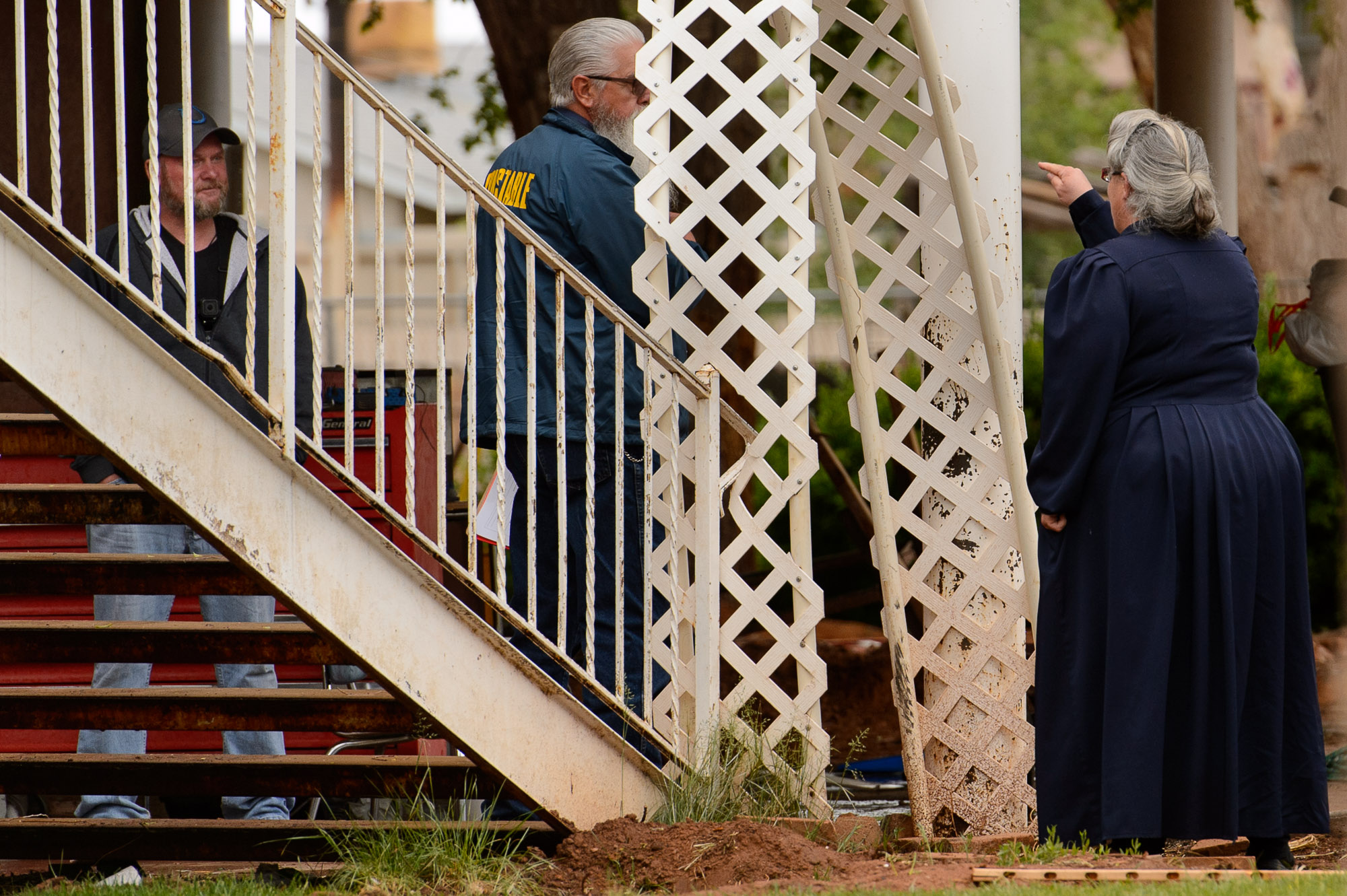
After the eviction was served, Darger lamented leaving her friends and family, but was confident going elsewhere was the right thing to do.
“I want to be with them, and I love them,” Darger said. “And I want to be worthy to be, I want to be worthy to be with the prophet’s people.”
— Tribune photographer Trent Nelson contributed to this report.
ncarlisle@sltrib.com
Twitter: @natecarlisle
Twitter: @tribunepolygamy








